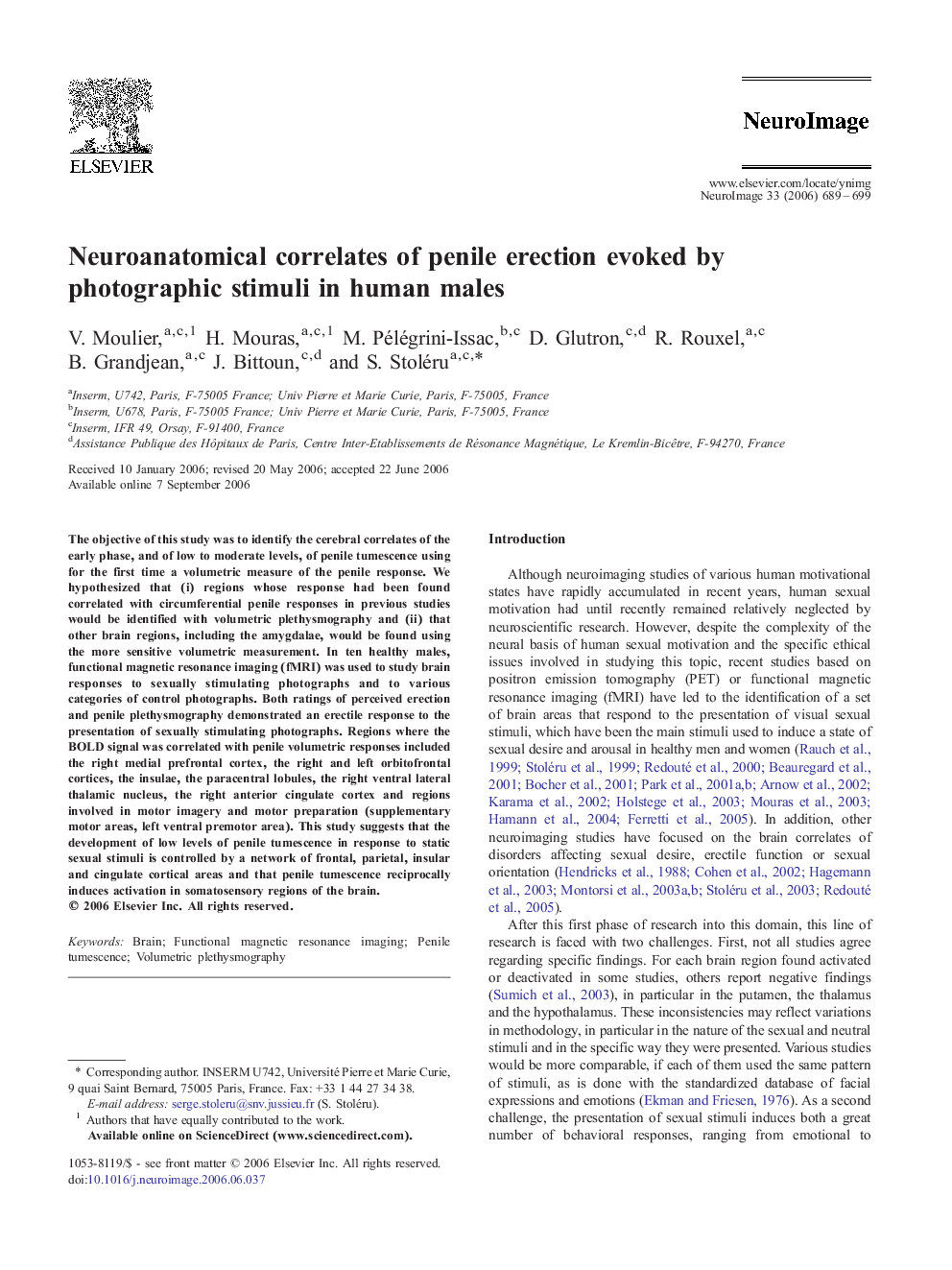| Article ID | Journal | Published Year | Pages | File Type |
|---|---|---|---|---|
| 3074465 | NeuroImage | 2006 | 11 Pages |
The objective of this study was to identify the cerebral correlates of the early phase, and of low to moderate levels, of penile tumescence using for the first time a volumetric measure of the penile response. We hypothesized that (i) regions whose response had been found correlated with circumferential penile responses in previous studies would be identified with volumetric plethysmography and (ii) that other brain regions, including the amygdalae, would be found using the more sensitive volumetric measurement. In ten healthy males, functional magnetic resonance imaging (fMRI) was used to study brain responses to sexually stimulating photographs and to various categories of control photographs. Both ratings of perceived erection and penile plethysmography demonstrated an erectile response to the presentation of sexually stimulating photographs. Regions where the BOLD signal was correlated with penile volumetric responses included the right medial prefrontal cortex, the right and left orbitofrontal cortices, the insulae, the paracentral lobules, the right ventral lateral thalamic nucleus, the right anterior cingulate cortex and regions involved in motor imagery and motor preparation (supplementary motor areas, left ventral premotor area). This study suggests that the development of low levels of penile tumescence in response to static sexual stimuli is controlled by a network of frontal, parietal, insular and cingulate cortical areas and that penile tumescence reciprocally induces activation in somatosensory regions of the brain.
